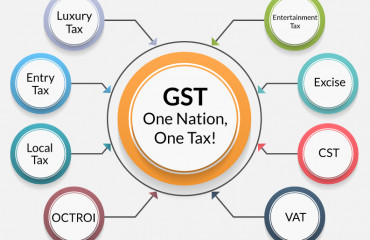
NEW DELHI : The Central Board of Direct Taxes (CBDT) has issued a set of guidelines on the interplay between two key schemes meant for minimising litigation--the Vivad se Vishwas direct tax dispute settlement scheme and the mutual agreement procedure (MAP) that offers relief to multinational companies.
NEW DELHI : The Central Board of Direct Taxes (CBDT) has issued a set of guidelines on the interplay between two key schemes meant for minimising litigation--the Vivad se Vishwas direct tax dispute settlement scheme and the mutual agreement procedure (MAP) that offers relief to multinational companies.
The set of guidelines clarifies how tax officials and businesses should approach disputes under these different schemes.
MAP is a way of resolving tax disputes over cross-border transactions of multinational companies by the tax authorities in their respective countries.
The Vivad se Vishwas scheme for direct tax disputes allows taxpayers to pay only the principal tax amount and enjoy waiver of interest and penalty. The scheme introduced in 2020 covers direct tax cases barring those related to wealth tax, securities transaction tax, commodity transaction tax and tax on online advertisements charged by the income tax department—the equalization levy.
The latest guidance from CBDT is an update on an earlier one issued in 2020.
Experts said that the latest guidance deals with two aspects--the interplay between MAP and Vivad se Vishwas scheme and the applicant's responsibility to make true and complete disclosure.
CBDT explained that in cases where a resident taxpayer had resolved a tax dispute over a cross-border transaction under the Vivad se Vishwas scheme and its associate company in the other country had sought resolution under MAP before the tax authority in that country, then CBDT has to be notified. Besides, MAP shall not deviate from the result of the Vivad se Vishwas scheme.
Further, it also provides that where a non-resident taxpayer has opted for Vivad se Vishwas scheme, access to MAP to such non-resident taxpayer will not be available, explained Saurrav Sood, practice leader (international tax) at accounting and consulting firm SW India.
"On the second aspect of making true and complete disclosure, CBDT has urged the taxpayers to be prompt in disclosing material changes in the information or documentation as had been submitted while applying for MAP. Providing accessibility to all documents in good faith will assist in smooth and efficient operations of the MAP process," said Sood.
Taxpayers should not hope to achieve a different outcome under MAP in cases where there exists overlap with prior settlement under Vivad se Vishwas scheme or adjudication by the Income Tax Appellate Tribunal, said Chirag Nangia, partner at Nangia & Co LLP.
"The press release also urged taxpayers to keep Indian competent authority abreast of up-to-date developments on pending cases by making 'true-and-complete' disclosure of all factual information and attendant details based on the cardinal principle of 'good faith action'," said Nangia.
